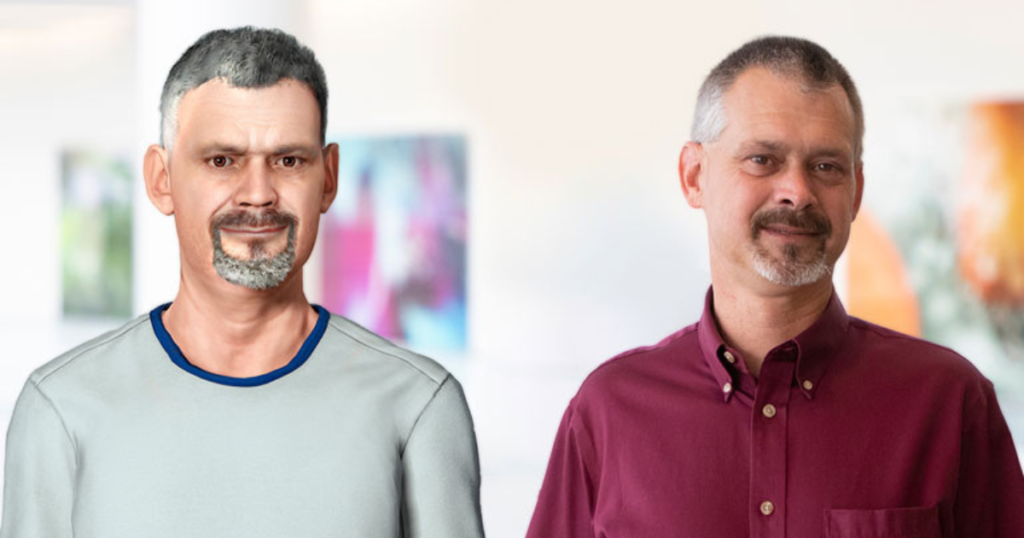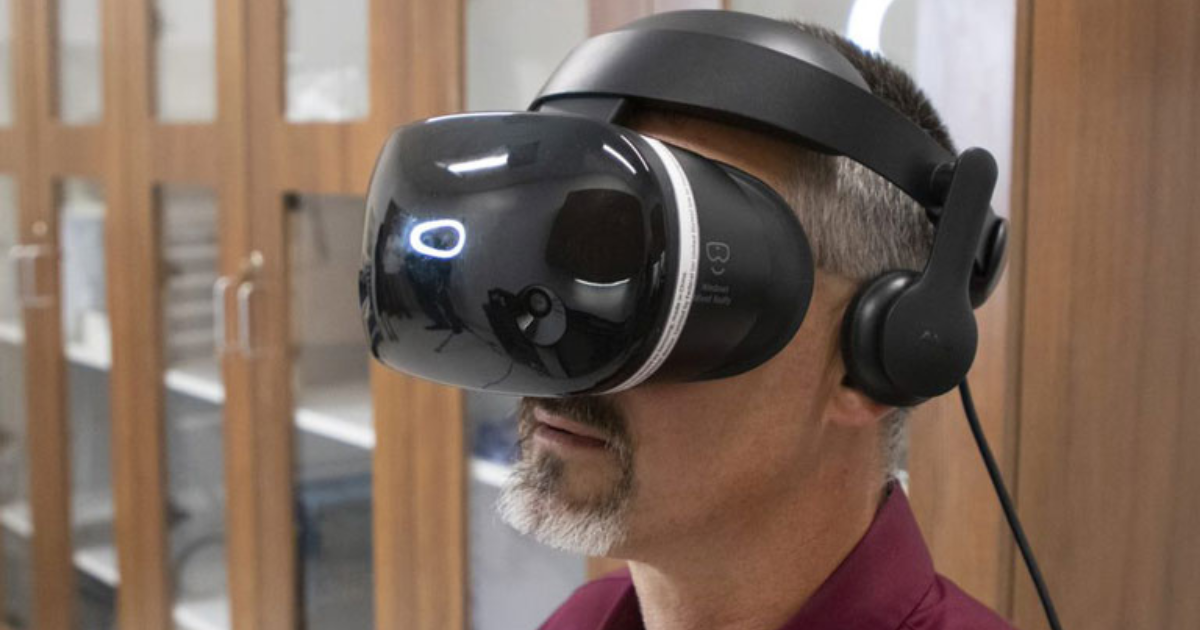Indiana University School of Medicine exploring new therapy for people with substance use disorders
For those struggling with drug or alcohol addiction, what if you had the chance to connect with your future self? What would you tell yourself if you stayed in recovery or suffered a relapse? Would the experience help you become more engaged in activities that promote your long-term recovery?
If you prefer reading, click here for the blog about Don Grant’s episode on Managing Our Relationships With Technology, featured on the Landmark Recovery Radio Podcast.
Researchers from the Indiana University School of Medicine are experimenting with virtual reality (VR) as a way to help people struggling with substance use disorder (SUD) to see alternate futures of what their lives could shape into. With more than $5 million in research funding from addiction and technology organizations like the National Institute of Drug Abuse (NIDA) and the National Institute of Alcohol Abuse and Alcoholism (NIAAA), Brandon Oberlin, assistant professor of psychiatry at the IU School of Medicine, helped launch a company called Relate XR, LLC. This university-affiliated startup company is part of a pilot study to help people in early recovery through VR.

Brandon Oberlin (pictured above) and the Indiana University School of Medicine used virtual reality to show alternate realities to people recovering from substance use disorder. (Photo by Indiana University)
A virtual environment to help people in early recovery
The tech startup created a virtual environment using fully animated, “future-self” avatars to help study participants recovering from drug and alcohol addictions. In collaboration with Indianapolis-based treatment centers, Oberlin and his team of researchers worked over the last four years to develop and test the technology, according to an IU report.
The results, published on September 15 in Discover Mental Health, found that the VR technology helped reduce substance cravings, and also helped participants avoid relapsing, which is common for people in early addiction recovery. Research shows that 40 to 60% of people in recovery will relapse at some point. However, about 85% of participants in the study abstained from substance use after 30 days. The goal of the personalized VR experience is to deepen connections between people in early recovery and their future selves, in the hopes that they’ll choose long-term recovery instead of a return to substance use.
Related: How “Gateway Behaviors” Can Lead to Substance Abuse
“VR technology is clinically effective and increasingly common for treating a variety of mental health conditions, such as phobias, post-traumatic stress disorder and postoperative pain, but has yet to find wide use in substance use disorders intervention or recovery,” Oberlin said in an IU report. “Capitalizing on VR’s ability to deliver an immersive experience showing otherwise-impossible scenarios, we created a way for people to interact with different versions of their future selves in the context of substance use and recovery.”
Revolutionary Intervention for addiction
The pilot study included 21 adults in early SUD recovery, defined as maintaining less than one year of sobriety. Each participant used VR technology to interact with two different versions of themselves that were 15 years older:
- One future self still battling SUD
- One future self in sustained recovery
Each future-self avatar included interactive monologues with personalized voice details to make the experiences more lifelike. Oberlin said that while VR technology use isn’t common in addiction recovery, it could have a significant impact on helping people make healthier life choices.
Related: Inside The Dark Web Drug Trade
“This experience enables people in recovery to have a personalized virtual experience, in alternate futures resulting from the choices they made,” Oberlin said. “We believe this could be a revolutionary intervention for early substance use disorders recovery, with perhaps even further-reaching mental health applications.”
Looking for addiction recovery support?
If you or a loved one struggles with active addiction or to sustain your recovery, we’re here to support you at Landmark Recovery. We offer an outpatient rehab program to help ease your transition back to home life. You could also benefit from our recovery coaching program, which can hold you accountable and connect you with resources after treatment.
No matter where you are, remember that nothing should come before your sobriety. Call 888-448-0302 today to talk to a recovery specialist. A member of our admissions team is available 24/7 to answer questions on a confidential line.
If you prefer to talk to someone in person, visit one of our drug and alcohol rehab centers in the following Indiana communities:

Choose Recovery Over Addiction
We're here 24/7 to help you get the care you need to live life on your terms, without drugs or alcohol. Talk to our recovery specialists today and learn about our integrated treatment programs.




